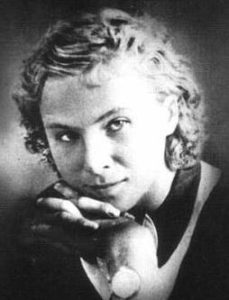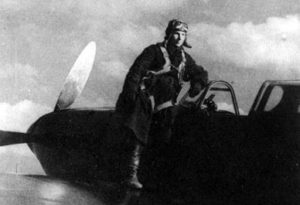The White Lily of Stalingrad
Lydia Vladimirovna Litvyak (1921-1943) was born in Moscow in the early days of the Soviet Union. She was fascinated by flight from a young age, and enrolled in a flying club at 14. She flew her first plane at 15 before heading to a military flight school. After graduating, Litvyak became a flight instructor. In 1941, Nazi Germany invaded the Soviet Union. Litvyak immediately volunteered to join a fighter pilot unit. However, she was rejected based on “lack of experience”, even though she had already trained 45 other pilots! Meanwhile, Marina Raskova established an all-female fighter force, and Litvyak was accepted. In 1942, Litvyak flew her first combat missions. She was soon moved to a standard (male) air force unit. In the battle for Stalingrad, Litvyak scored her first two kills, setting her name in history as the first female fighter pilot to take down an enemy plane. She went on to run 66 combat missions, and logged 16 victories. In 1943, now promoted to junior lieutenant and awarded the Red Star, Litvyak was assigned to the okhotniki, “hunters”, experienced fighter pilots who were given permission to roam the skies on their own, and strike at will. Despite suffering multiple wounds, and recommended to go on medical leave, Litvyak refused. Shortly after, she went on her final mission, and did not return to base. Her whereabouts were unknown. She was either killed or taken captive – the latter possibility preventing her from being awarded the prestigious ‘Hero of the Soviet Union’ award. Litvyak was only 22 years old. In 1979, after decades of searching, the remains of her plane and body were found. She had been buried by local villagers, having died from a head wound. In 1990, she was posthumously awarded the Hero of the Soviet Union, with a rank of senior lieutenant. Nonetheless, some claim that she survived, and either perished in a German prisoner camp, or lived out the rest of her life in secret, marrying and having children. Litvyak’s story has been featured in several fiction novels, and even a stage production. In the Soviet Union, she was affectionately called the “White Lily of Stalingrad”.
Words of the Week
Everything is by Divine Providence. If a leaf is turned over by a breeze, it is only because this has been specifically ordained by God to serve a particular function within the purpose of creation.
– Rabbi Israel Baal Shem Tov


